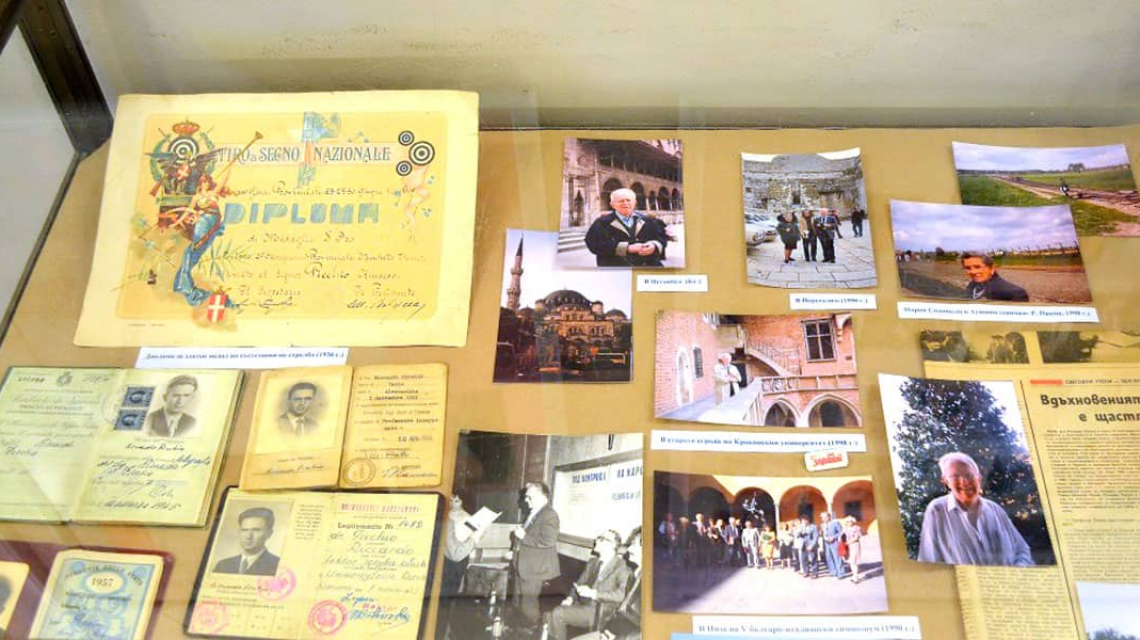Within the framework of the Ninth Colloquium on Old Bulgarian Studies (August 28-30, 2023) at the Bulgarian Academy of Sciences, a commemorative evening was held in honor of Prof. Riccardo Picchio. Before the colloquium, on August 24, in a joint participation in the "Hristo Botev" program of the Bulgarian National Radio, Prof. Krasimir Stanchev and Prof. Anna-Maria Totomanova told interesting facts from the life of the prominent Italian specialist in Bulgarian and Medieval Studies.
Riccardo Picchio is an Italian Slavist and Bulgarian scholar. He graduated in Slavic studies at the Sapienza University of Rome. For two years he taught Italian (1948–49) at the University of Warsaw, where, under the influence of Tadeusz Lehr-Splavinski, he focused on Paleo-Slavic studies and later specialized in Bulgarian in Paris under Roger Bernard and Old Russian literature under Andre Mazon.
Between 1953 and 1961 he was a professor at the universities of Florence and Pisa, and then headed the Institute of Slavic Philology at La Sapienza University of Rome (1961–65). In 1965–1966 he was visiting professor at Columbia University in New York, and from 1968, for almost two decades, he was professor of Slavic literature at Yale University in New Haven. When he returned to Italy in 1985, Riccardo Picchio became professor of Russian, Church Slavonic/Old Bulgarian and Bulgarian literature at the Orientale University in Naples, where he retired in 1993. He is the author of the concept of Slavia Orthodoxa, which prevailed in the scientific world – a unique cultural space shaped by the Orthodox faith with a common language – basically Old Bulgarian in various diachronic and diatopic variations, and common literary models and practices.
Prof. Picchio is Doctor Honoris Causa of Sofia University "St. Kliment Ohridski" from 1988 and elected as a Foreign Member of the Bulgarian Academy of Sciences in 1981. A great friend of Bulgaria, scholar and researcher, who ignited many bright minds in the study of the literature and language of the medieval Slavs without the limits of modern or then geographical and political concepts.
Prof. Totomanova also emphasized the opportunities the development of the national research infrastructure for Bulgarian medieval written heritage and the participation of Bulgaria in the international research infrastructure RESILIENCE offer to foreign Bulgarian studies scholars.
She said also that, thanks to the international infrastructure, researchers from different countries, including Italy, Spain, Poland and others, who are working with our medieval manuscripts, biblical texts and other cultural heritage, have been arriving here for four years, thus increasing the visibility of our written heritage and putting Bulgarian scholars on the international map of religious studies.
The celebrations of Prof. Picchio continued with an exhibition in his honor in the premises of the Bulgarian Academy of Sciences. You can hear more about the exhibition in the recording of the program “Our Day” by Prof. Silvia Naydenova, director of the Central Library of the BAS.



